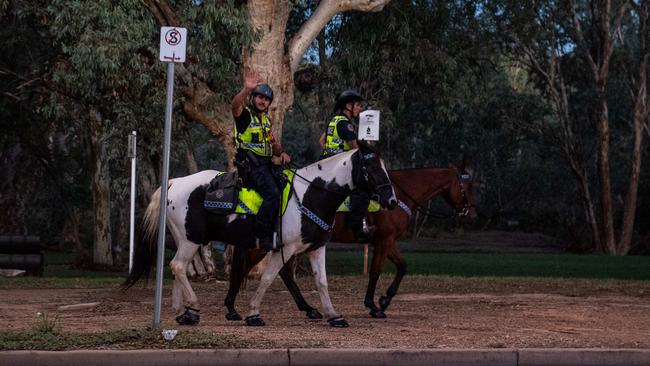NT government to introduce ‘common sense’ curfew laws
The NT Labor government has vowed to introduce stand-alone curfew legislation with greater Police powers following the ‘success’ of the Alice Springs Youth Curfew in March.

The Northern Territory government has introduced a curfew policy in a bid to reduce crime following the “success” of the Alice Springs youth curfew.
The Police Legislation Amendment Bill 2024 will be introduced on Thursday to continue the “commonsense” approach touted by Territory Labor in its crackdown on crime rates.
NT Chief Minister Eva Lawler said the legislation would allow a more “flexible” approach by enabling the NT Police Force to call and enforce curfews.
“We don’t anticipate curfews will be used frequently but they are an important option for police to keep communities across the Territory safe – and that’s why we are bringing in this new legislation,” she said.
“We’ve seen the benefits the Alice Springs youth curfew has delivered to residents and businesses and we want to have the option to use curfews as a circuit-breaker where they are needed.
“I appreciate these new curfew laws are breaking new ground so have ensured there is a special review process to enable the powers to be appropriately scrutinised.”
The legislation comes after the Alice Springs youth curfew was enacted on March 27 when the death of a local teenager led to reports of escalating violence and the declaration of an emergency.
Under the curfew, people under the age of 18 were banned from entering the town centre between 6pm and 6am without a valid reason. The two-week policy was then extended, much to the ire of critics who labelled the move a “kneejerk reaction”.
However, Territory Labor cited the “positive outcomes” achieved by the curfew as a reason for doubling down on the otherwise contentious policy.
A statement from the government on Tuesday said the Alice Springs example proved curfews could be an effective “community safety tool”.
The new stand-alone curfew legislation aims to improve upon the law used to enact the Alice Springs curfew, the Emergency Management Act 2013.
Labor said the act did “not suit a flexible approach to community safety” as it took a specific set of circumstances, over a number of weeks, to achieve an Emergency Situation Declaration and enactment of the youth curfew.
The new bill has been spruiked as a “circuit-breaker” by requiring any use of a curfew to depend on operational assessments made by police. Under the change, formally declaring a curfew will require steps to be taken by the Commissioner of Police and extensions will require a sign off from the police minister.
NT Minister for Police Brent Potter welcomed the legislation in the wake of the Alice Springs curfew and feedback from residents.
“Police do an incredible job to keep Territorians safe and this curfew legislation will give them another tool to lower crime and reduce anti-social behaviour,” he said.
“The feedback from police on the ground during the Alice Springs curfew was that having (it) in place helped to reduce offending; we want to be able to replicate that success in other areas of the Territory.”
Alice Springs’ crime crisis has been escalating since the Stronger Futures legislation, which restricted alcohol in the town, was allowed to expire in 2022 and violence re-emerged in recent months, despite Anthony Albanese forcing a return to grog bans in January last year.





To join the conversation, please log in. Don't have an account? Register
Join the conversation, you are commenting as Logout